The Westwood Food Cooperative is back after a 2 1/2-month hiatus. It's in a new space with more products and more days to serve neighbors who struggle to feed their families.
The neighborhood-owned and -run food store in a food desert once occupied a warehouse just down the street from its new space at 3800 Morrison Road. Construction is underway in the warehouse at 3738 Morrison that will one day be part of a campus that will include a full-service grocery store owned by the Westwood Food Cooperative. The next move for the co-op will be to the grocery store premises in a few years.
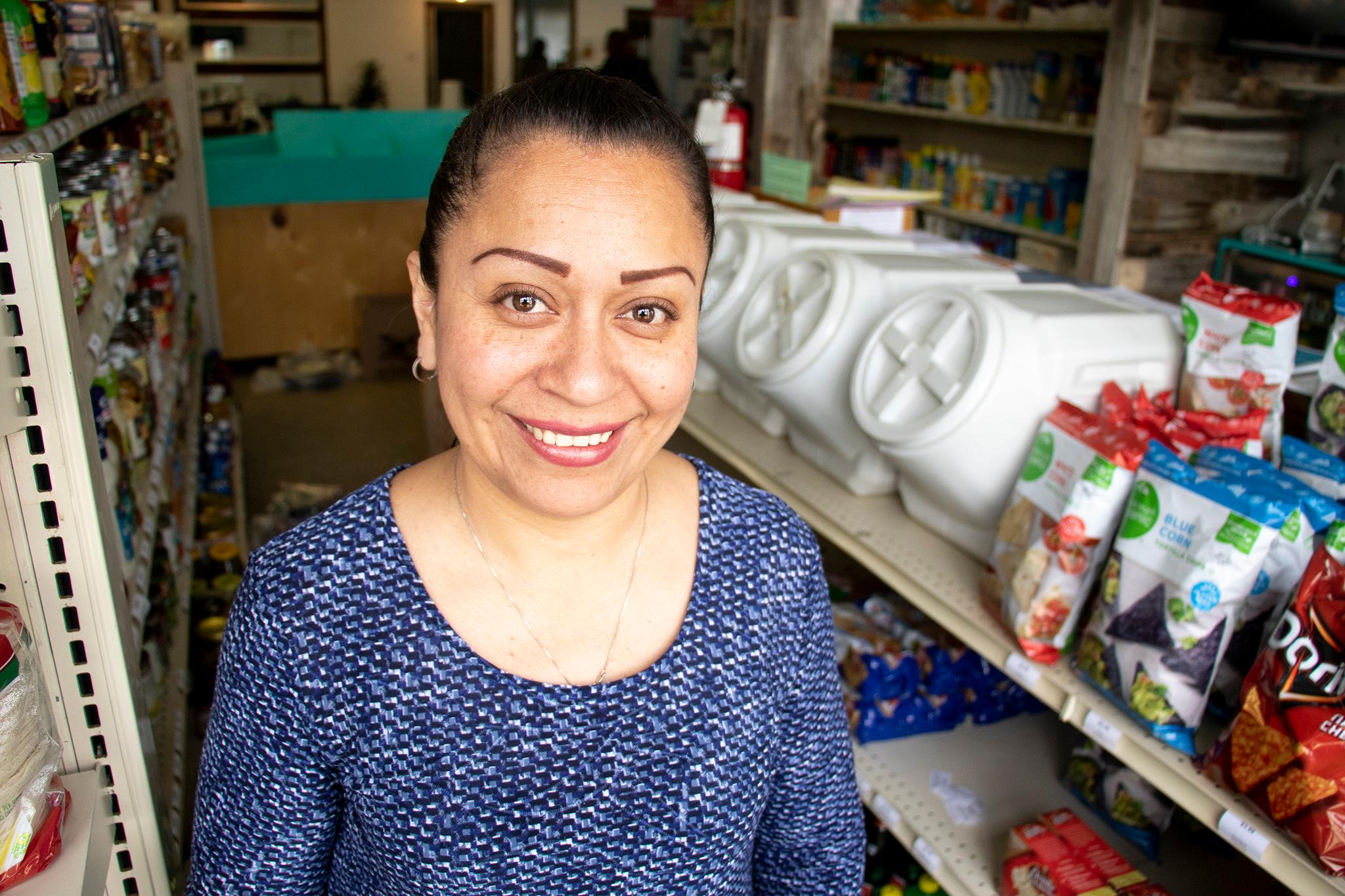
"I feel very proud of this," co-op member Yuri Bahena said as she stood at the cash register surveying a crowd sampling free tamales, fruit, chocolates and cookies at the grand reopening Saturday.
Friday, Bahena had been stocking shelves to get ready for the opening. She has been involved since the co-op was just an idea back in 2013, a year before it was officially established. Her customers Saturday included City Councilman Paul López, who represents west Denver.
"I knew that they were going to be opening. I just wanted to come in and buy my groceries," López said, adding he was gathering supplies for arroz con pollo.
He said the co-op was an example of "responsible community development that involves the community.
"Why wait for corporations to come in and deem us worthy?" he said, referring to supermarket chains. "We have the capacity. We have the models here."
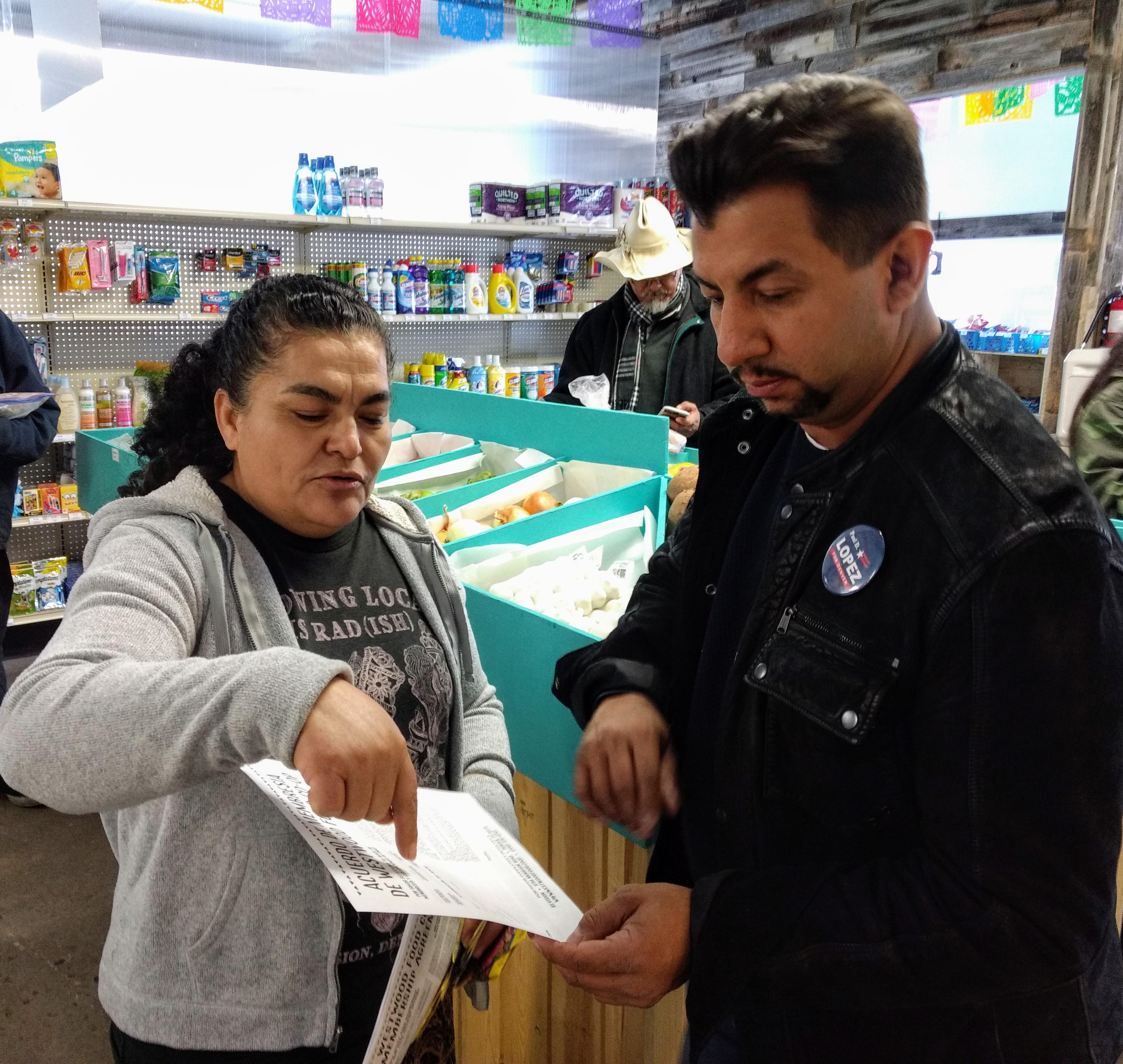
The co-op began with a pilot, El Mercadito. It now has 335 member-owners who pay either $40 annual or $200 lifetime dues. Those who choose the $40 option can keep paying every year until they reach $200, at which time they are lifetime members and owe no more. You can shop at the co-op without joining, but membership entitles you to discounts and a say in how the organization is run.
Bahena said that in its old warehouse space the co-op had served 20-25 people a week. Then, it was only open 9-to-5 on Tuesdays and Fridays and 9-to-3 on Saturdays.
Now, "we hope at least we can serve 30 people per day. Or more," Bahena said.
That's not just because the co-op's new hours are 9-to-5 Monday to Friday as well as Saturdays from 9 a.m. to 3 p.m. Bahena hopes expanded offerings also will draw more customers. New shelving in the 800-square-feet of shopping space behind a trendy glass garage door -- not much bigger than the old space -- has allowed the co-op to squeeze in 120 new items. They include frozen meat supplied by a Longmont farmer and more household items such as soaps, dishes and paper goods.
"This is really a big change for us and for our community," Bahena said. "Many people want to buy everything in one store."
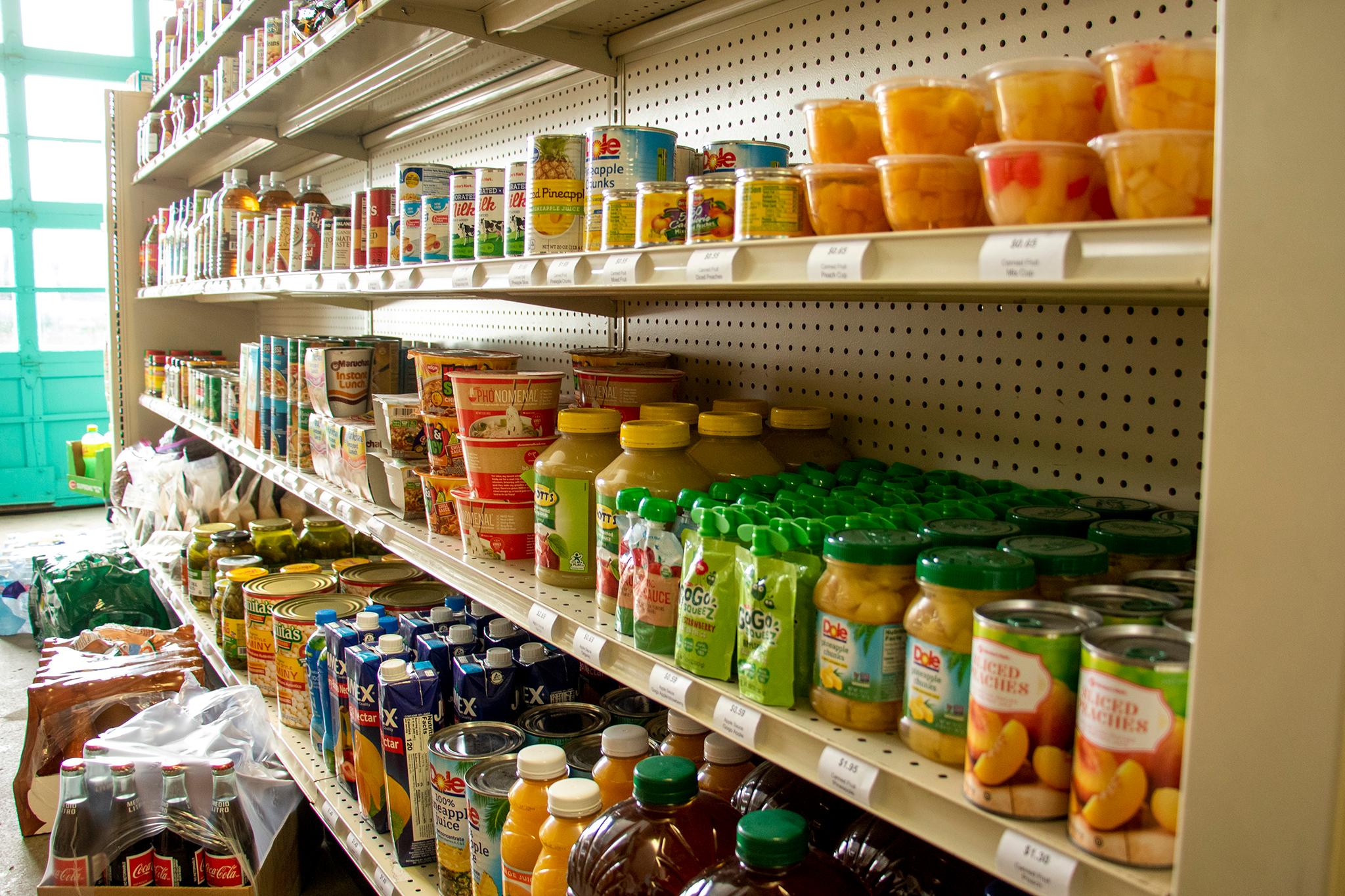
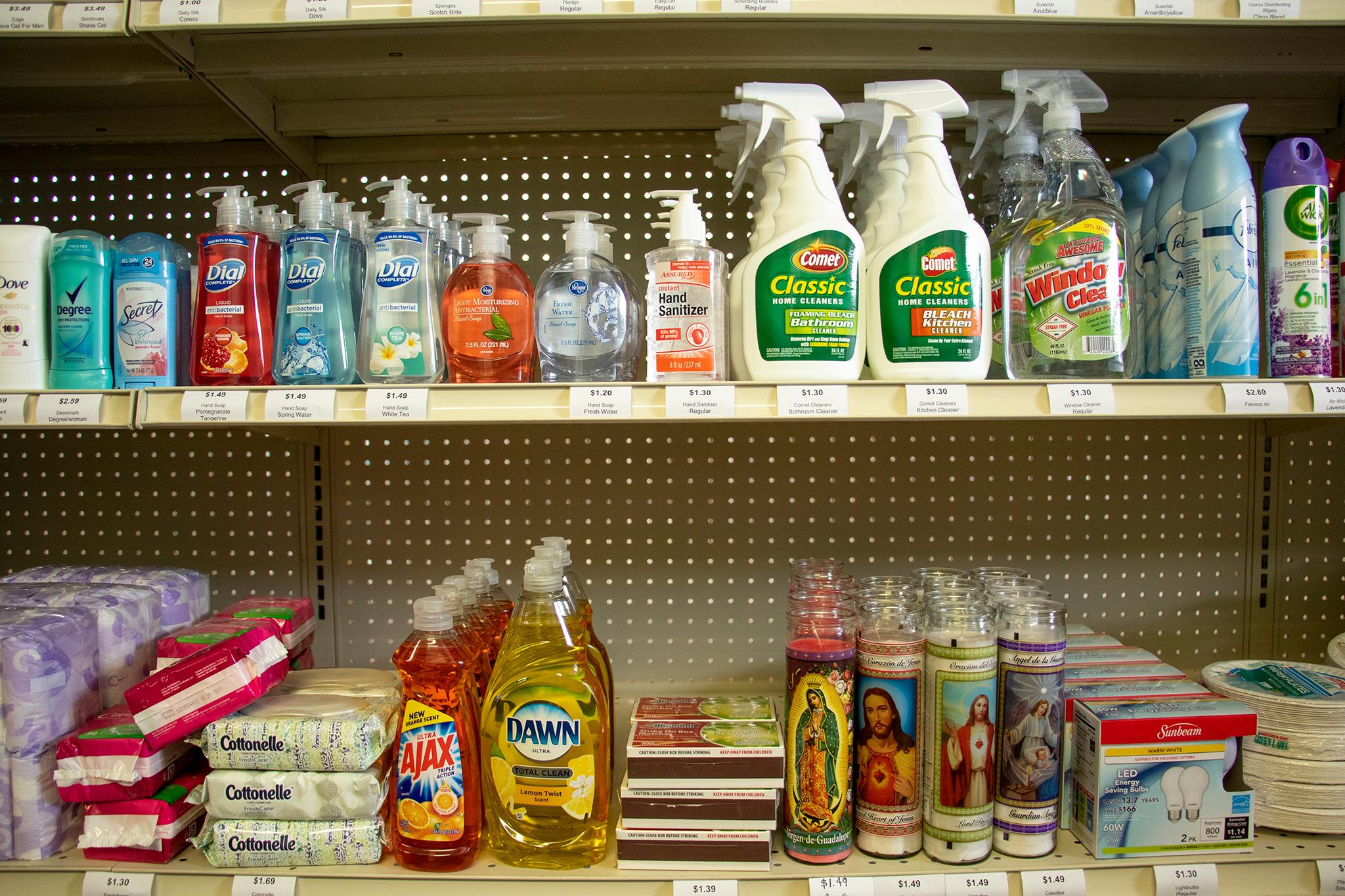
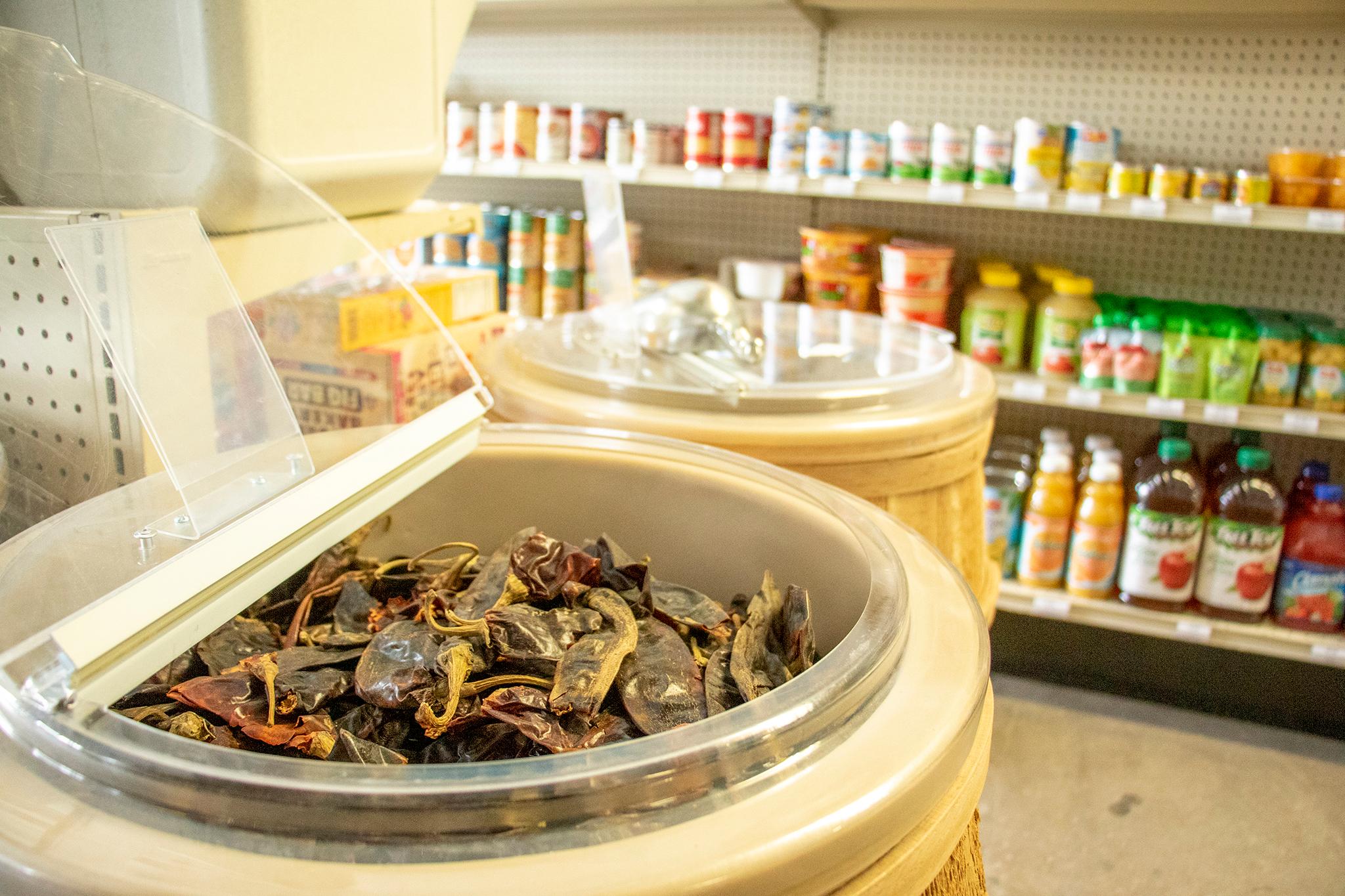
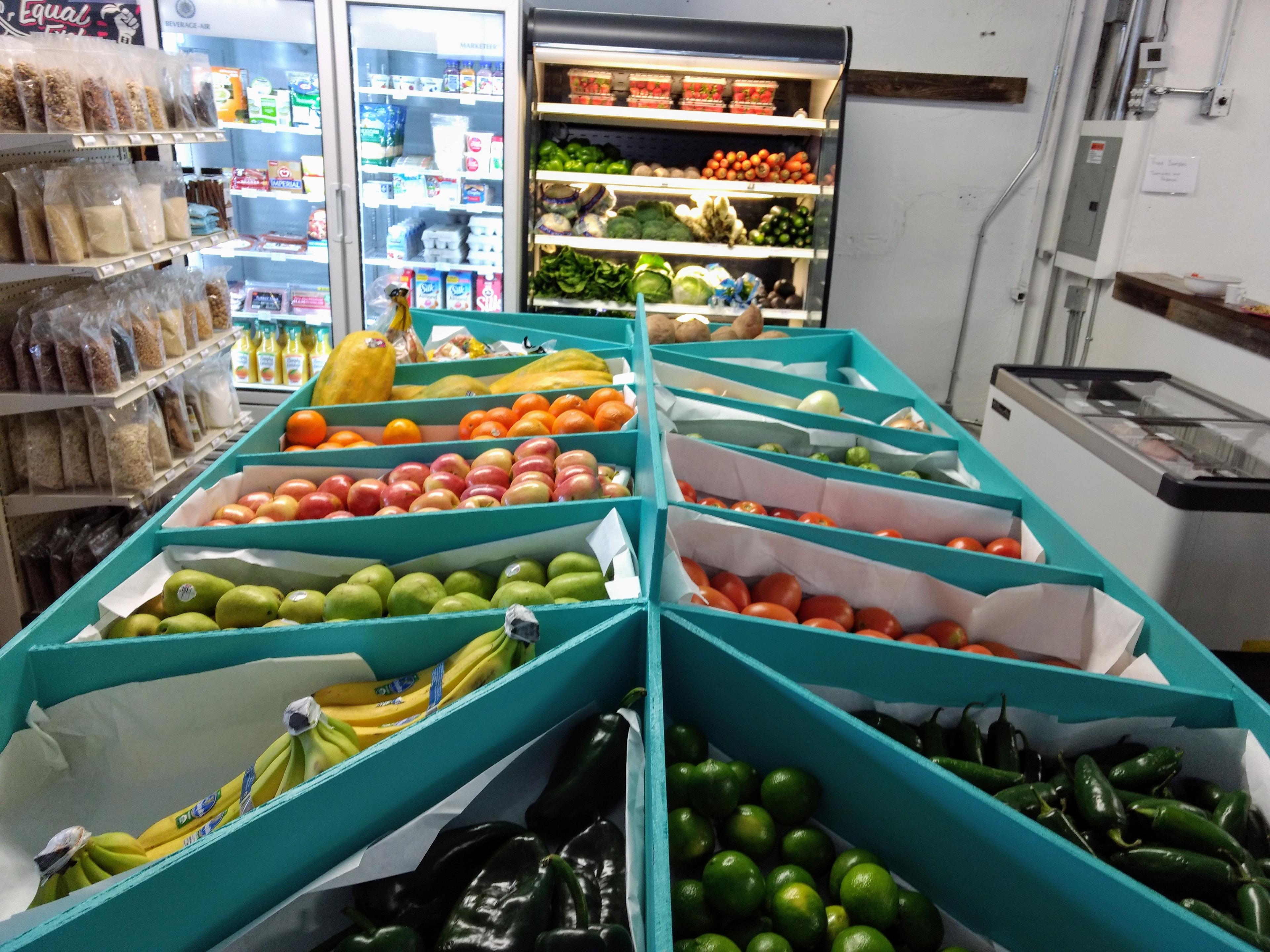
Jaime Tomas Aguilar, a photographer who was among the re-opening day shoppers, said the co-op was two miles from his Villa Park home. The closest supermarket was three miles. Smaller stores, including a 7-11, were closer, but they don't meet his needs, he said.
"I can't find the products that are here (at the co-op), vegetable-wise. Nor the grass-fed meat," he said.
At focus groups with their neighbors, Bahena and other co-op members heard concern about prices, which are often lower at chain supermarkets than at the kinds of corner stores the co-op resembles in size.
Bahena said she spends hours researching product discounts and rebates as part of efforts to keep prices low. During summer much of the produce comes from a neighborhood urban farm, which helps keep produce prices low, Bahena said.
"We know it's really, really hard for families to buy fruits and vegetables because they don't have the money," she said.
In addition to supporting her co-op, Bahena manages a program to support neighborhood entrepreneurship that is part of Re:Vision, a development non-profit working in Westwood. Re:Vision runs the urban farm that supplies the co-op and has provided administrative support to the store.
Re:Vision now shares its office space in a renovated auto-body shop with the store. That's going to make shopping convenient for Bahena, who used to shop at a King Soopers about two miles away.












